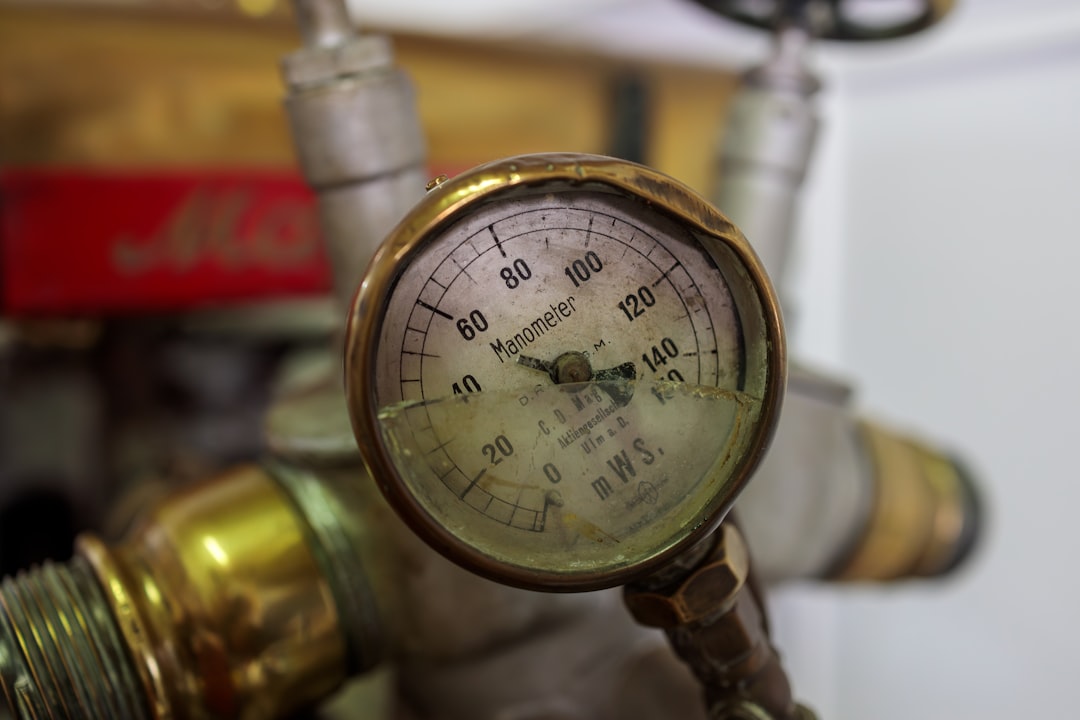My boiler pressure keeps dropping. Who can I call to diagnose boiler pressure issues?


Why Your Boiler Pressure Gauge Demands Your Attention
My boiler pressure keeps dropping. Who can I call to diagnose boiler pressure issues? It's a common concern for homeowners in Langley, Maple Ridge, Mission, and Pitt Meadows. A boiler that repeatedly loses pressure is a warning sign that your sealed heating system needs attention. If the pressure gauge stays below the green zone, your boiler may stop heating, leaving you in the cold.
Quick Answer: If your boiler pressure keeps dropping, you should call a licensed gas technician or HVAC professional who specializes in boiler repair. For persistent pressure loss in the Lower Mainland, contact a qualified service provider like Valley Pacific Mechanical at their emergency line.
When to Call a Professional:
- Pressure drops daily or weekly despite topping up
- Visible water leaks around the boiler, radiators, or pipes
- Error codes appear on your boiler display (F22, E119, F1, E118)
- No heating or hot water despite normal pressure gauge reading
- Strange noises like kettling, banging, or gurgling
- Damp patches on walls or ceilings near heating pipes
Normal boiler pressure is between 1.0 and 1.5 bar when cold. If you're constantly repressurizing your system or the gauge drops below 1 bar within days, it's more than a simple maintenance issue. Hidden leaks, faulty valves, or internal component failure could be the cause. Topping up is a temporary fix; repeated pressure loss requires a professional diagnosis to prevent expensive damage.
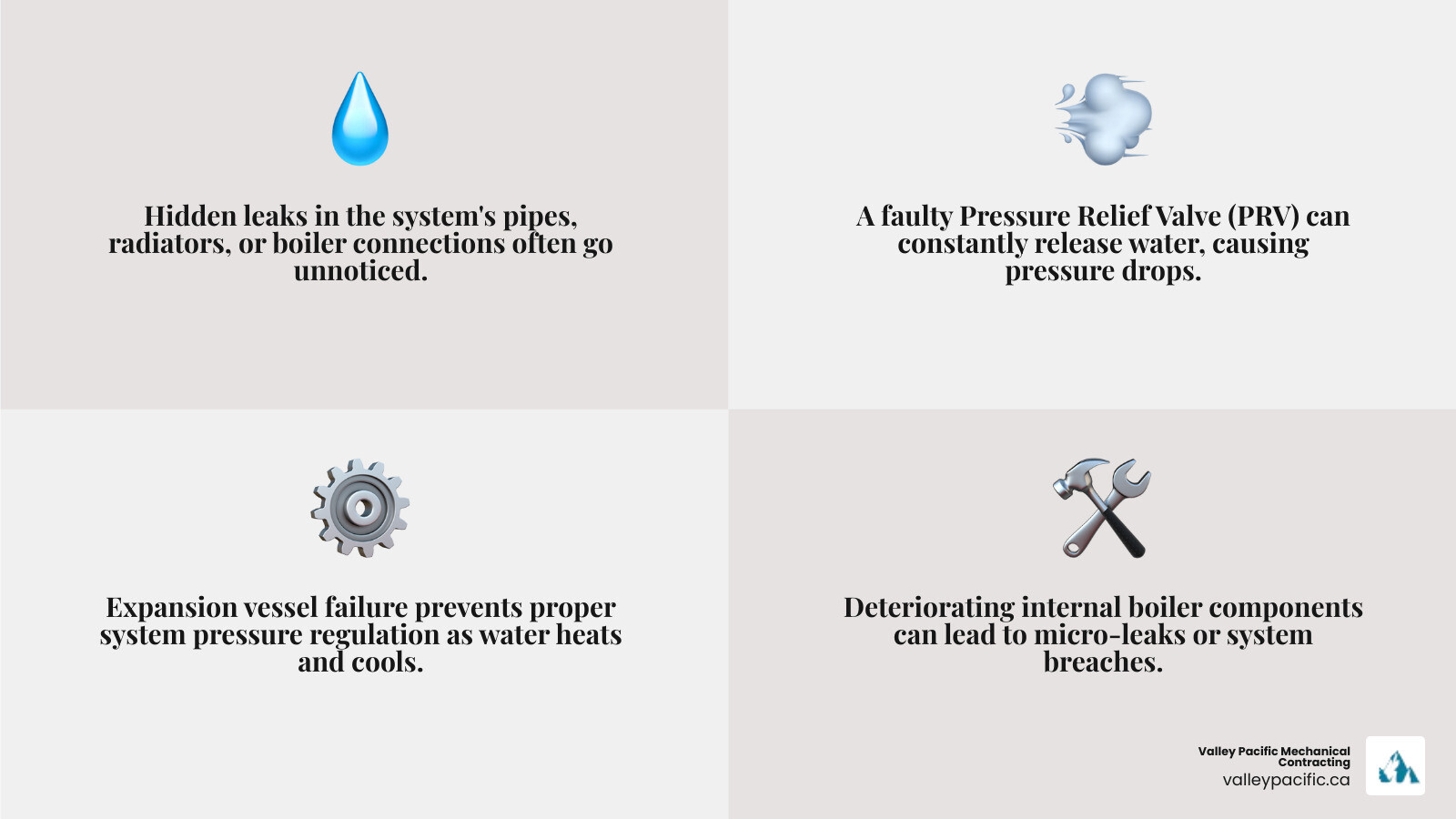
Terms related to My boiler pressure keeps dropping. Who can I call to diagnose boiler pressure issues?":
Understanding Normal Boiler Pressure
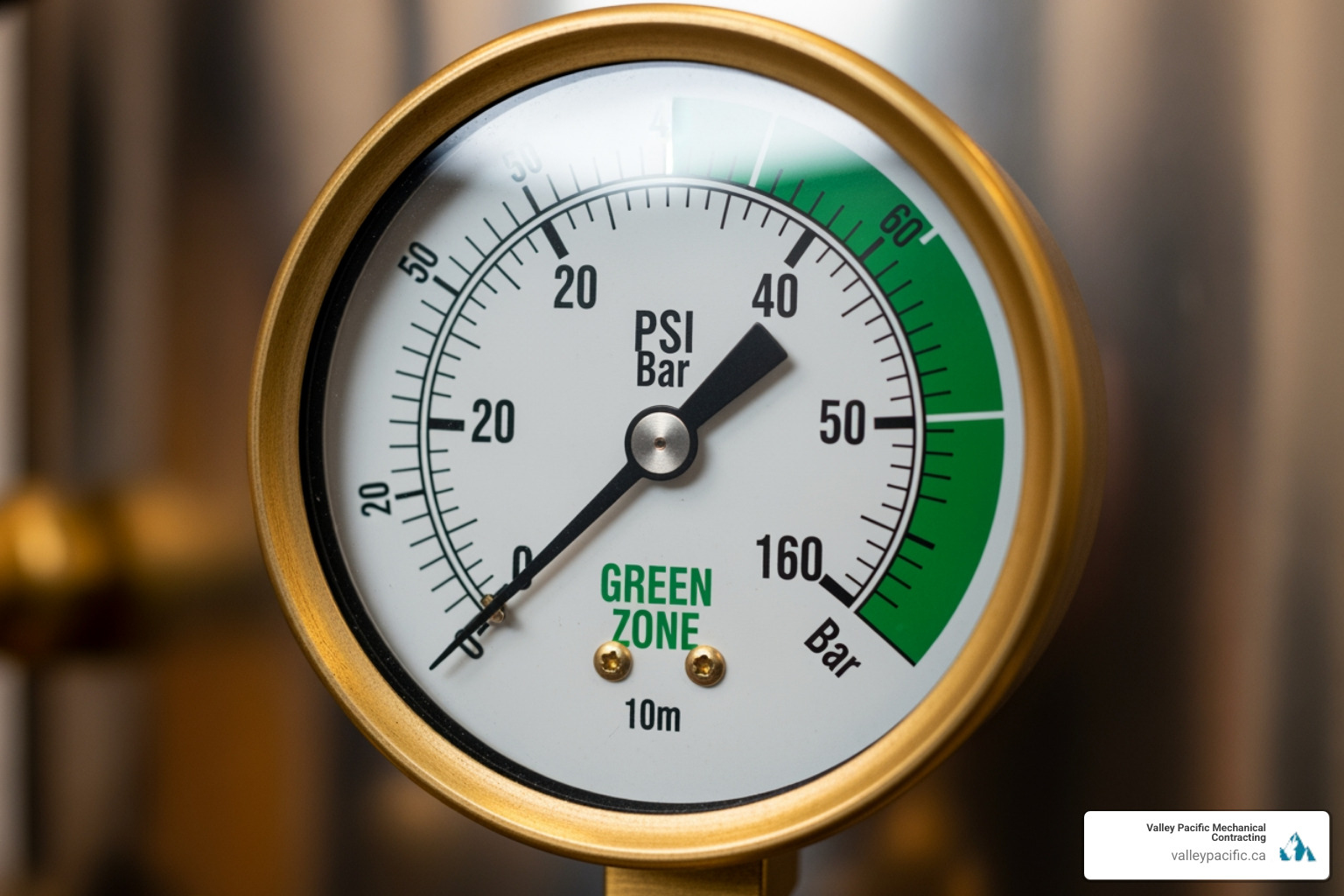
To understand why your boiler pressure keeps dropping, you first need to know what's normal. Boiler pressure is the force that moves water through your sealed central heating system. Without the right pressure, the system struggles.
When your system is cold, the pressure gauge should be in the green zone, typically between 1.0 and 1.5 bar. When you turn on the heating, the pressure will naturally rise as the water heats and expands. It's normal to see it climb to around 2.0 or 2.5 bar while hot. The pressure will drop back down as the system cools.
Correct pressure is vital. When it drops below 1.0 bar, your boiler often enters a safety lockout mode and won't fire up. This protects components like the heat exchanger and pump from damage. Conversely, if pressure is consistently too high (above 2.5-3.0 bar), the pressure relief valve may release water, causing drips around your boiler.
The signs of low boiler pressure are obvious: radiators feel cold or lukewarm, you hear gurgling noises from pipes, or the boiler displays error codes like F22, E119, F1, or E118. Some boilers shut down entirely (boiler lockout) until the pressure is restored. Our guide on what to do when boiler pressure drops can help.
A healthy boiler maintains steady pressure. If you're constantly topping it up, something needs professional attention.
Common Causes for a Boiler Losing Pressure
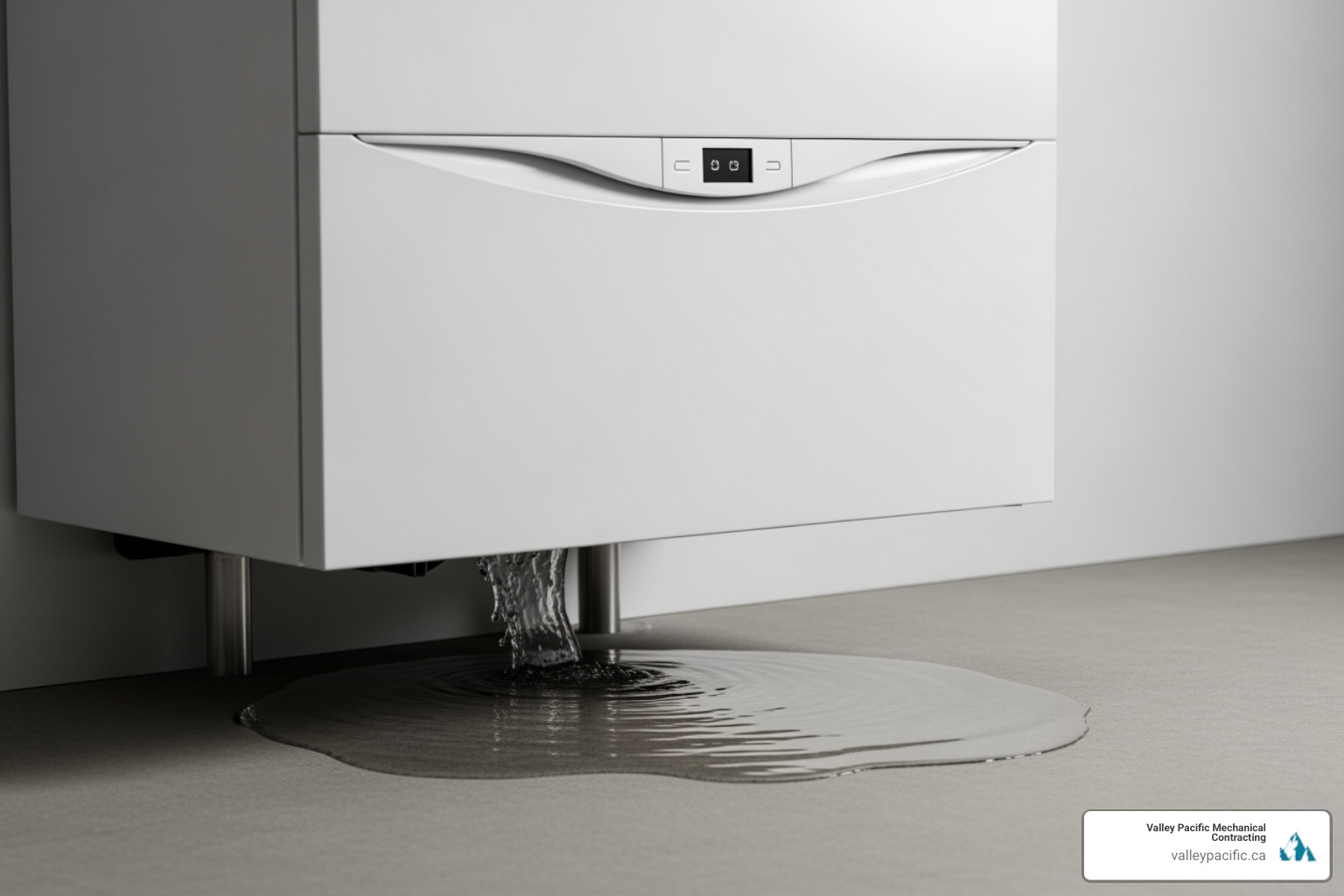
If your boiler pressure gauge keeps dropping, it usually points to a few common culprits. Leaks are the number one reason for pressure loss. Even a pinhole-sized leak can drain the system over time.
Check your radiator valves for dampness, stains, or corrosion. Inspect visible pipework joints for rust or damp patches on nearby surfaces. Leaks can also hide under floorboards or behind walls, evidenced by damp spots or discoloration. If you see water around your boiler, our guide on boiler leaking water can help.
Faulty components can also cause pressure drops. The expansion vessel manages water expansion as it heats and cools. If the internal diaphragm fails, it can lead to pressure loss. Our article on the boiler expansion tank explains more.
The pressure relief valve (PRV) is a safety device that releases water if pressure gets too high. A faulty PRV can get stuck open, continuously discharging water. You might see water dripping from a small copper pipe on an outside wall.
If you recently bled your radiators, you released air and a small amount of water, which naturally lowers the pressure. This is normal; simply top up the system to bring the pressure back into the green zone.
If you've checked for obvious leaks and still wonder, "My boiler pressure keeps dropping. Who can I call to diagnose boiler pressure issues?" it's time for a professional. A qualified technician can find hidden leaks and faulty components.
How to Safely Repressurize Your Boiler: A DIY Guide
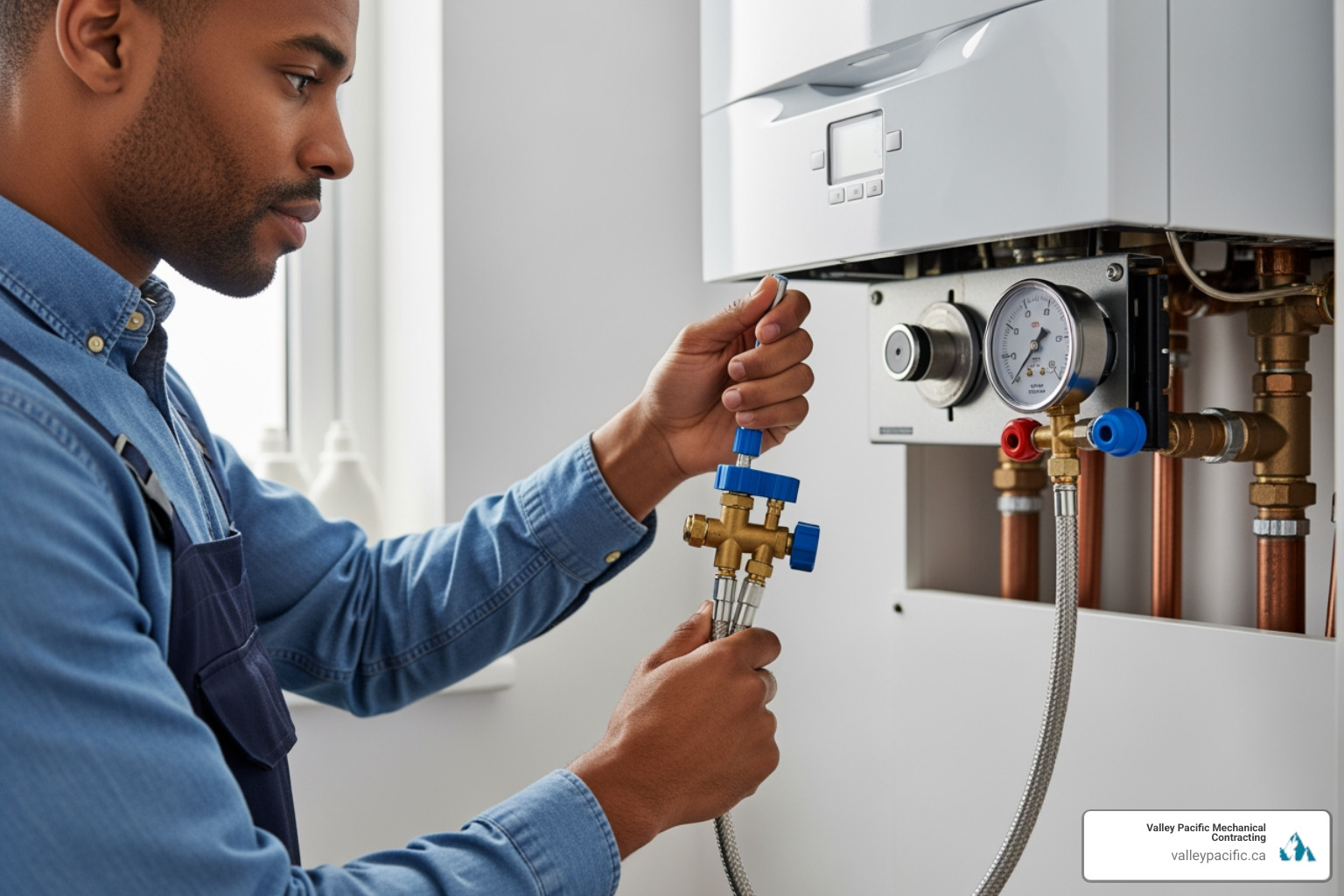
If your boiler pressure is below 1.0 bar and you see no obvious leaks, you might be able to repressurize it yourself. Disclaimer: Only proceed if you feel confident and consult your boiler's manual for specific instructions. If unsure, call a professional.
First, turn off the boiler and let it cool down for an accurate reading. Locate the filling loop—a silver or grey flexible hose with two valves, usually under the boiler. If it's detachable, ensure it's securely connected.
Next, open the valves slowly, one after the other. You'll hear water flowing into the system.
Watch the pressure gauge closely. As water enters, the needle will rise. Aim for 1.0 to 1.5 bar (the green zone) when the system is cold. Once in range, close both valves firmly, starting with the second one you opened. Ensure both are fully closed to prevent over-pressurization.
If your filling loop is detachable, remove it. Then turn your boiler back on, pressing the reset button if necessary. If you overfill the system, you can bleed a radiator to release a little water and lower the pressure.
For a visual guide, this video shows you how to do it yourself.
Repressurizing is a useful skill, but if you're doing it more than twice a year, it's time to ask, "My boiler pressure keeps dropping. Who can I call to diagnose boiler pressure issues?" and call a professional.
My boiler pressure keeps dropping. Who can I call to diagnose boiler pressure issues?
If you're constantly topping up your boiler pressure only to see it drop again, it's no longer a DIY fix. A persistent pressure drop indicates a deeper issue that will only worsen if ignored. Calling for a repair in the cold winter months in Langley, Maple Ridge, Mission, or Pitt Meadows is never ideal. However, a boiler that repeatedly loses pressure is signaling a problem like a hidden leak or a failing component. These issues don't resolve on their own and can lead to expensive damage and boiler failure.
At Valley Pacific Mechanical, we know that my boiler pressure keeps dropping. Who can I call to diagnose boiler pressure issues? is a question from a worried homeowner. With 30+ years serving the Lower Mainland and 24/7 emergency service, we're here to ensure you're never left in the cold.
For expert diagnosis and repair, our specialized teams are ready to help:
- Boiler Repair Langley BC
- Boiler Repair Maple Ridge BC
- Boiler Repair Pitt Meadows BC
- Boiler Repair Mission BC
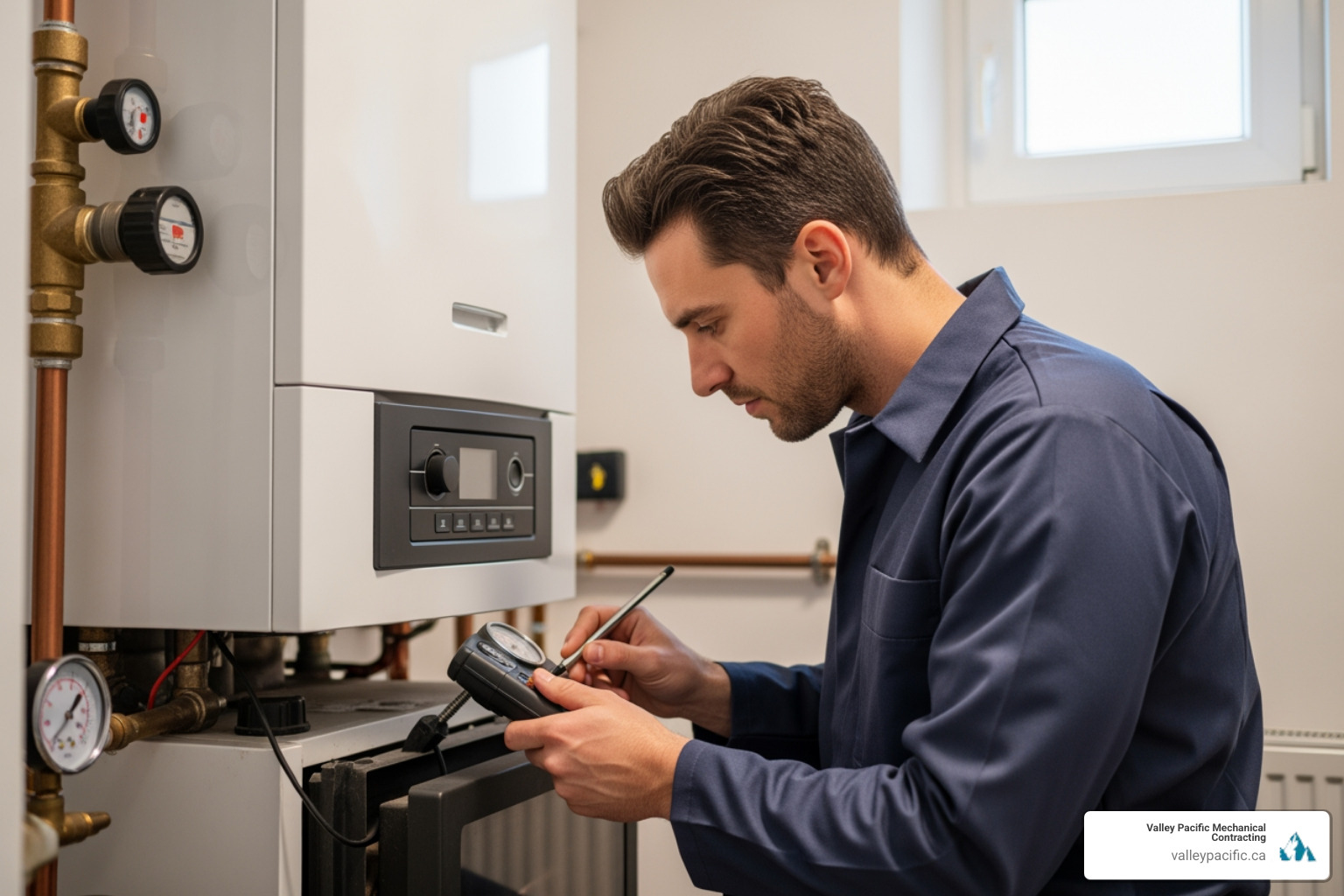
When is it time to call a professional because my boiler pressure keeps dropping?
A one-time pressure drop after bleeding radiators is different from a persistent problem. If you're repressurizing your boiler daily or weekly, it's time to call a professional. Constantly adding fresh water introduces oxygen, which accelerates internal corrosion.
Other clear signs you need help include:
- Visible leaks you can't fix: A persistent drip from the boiler, a valve, or pipework can lead to significant water damage.
- Unusual noises: Kettling, banging, or gurgling are symptoms of underlying problems like limescale buildup or air in the system.
- Lockout mode and error codes: If your boiler shuts down and displays codes like F22, F1, E119, or E118, it needs professional attention.
- No hot water or heating: If the system isn't working despite a normal pressure reading, another component may have failed.
Working with gas appliances requires specialized training. In British Columbia, a licensed gas fitter must legally work on your boiler. For your family's safety, only qualified professionals like those with a gas safe engineer certification (the UK equivalent) should handle gas appliances.
What can a professional do to diagnose boiler pressure issues?
Our licensed gas fitters don't just top up the pressure; we find the root cause. With over 30 years of experience, we use a systematic approach to diagnose why your pressure keeps dropping.
- Advanced leak detection: We use thermal imaging cameras to find hidden moisture and acoustic listening devices to hear faint water leaks, pinpointing problems that are otherwise invisible.
- Component testing: We test the pressure relief valve (PRV) for faults and check if the expansion vessel has lost its charge or failed.
- System health check: Frequent top-ups can dilute corrosion inhibitors, leading to sludge and rust. We may recommend a system flush to clean the system and restore flow.
- Error code analysis: We use manufacturer-specific knowledge to interpret what your boiler's error codes mean.
Professional diagnosis looks at the whole picture to find the cause, not just the symptom. Regular boiler system maintenance is the best way to catch these issues early. During a maintenance visit, we check all components, test pressure, and inspect for leaks, preventing small problems from becoming expensive ones.
When my boiler pressure keeps dropping, the answer to who can I call to diagnose boiler pressure issues? is Valley Pacific Mechanical. We bring three decades of experience to every job for honest, expert service.
Frequently Asked Questions About Boiler Pressure
Here are answers to common questions from homeowners in Langley, Maple Ridge, Mission, and Pitt Meadows about boiler pressure.
Why does my boiler pressure rise when the heating is on?
It's normal for boiler pressure to rise when the heating is on due to thermal expansion. As water heats up in the sealed system, it expands, which increases the pressure. A rise of about 0.5 bar is typical. However, an excessive rise (e.g., from 1.0 bar to 3.0 bar) could indicate a problem with your expansion vessel, which is designed to absorb this pressure change. This requires a professional inspection.
Is low boiler pressure dangerous?
Low boiler pressure isn't immediately dangerous. Modern boilers have safety features that put them into lockout mode when pressure drops too low (usually below 1.0 bar). This is a protective measure to prevent system damage. The real risk is the underlying cause. A persistent leak can cause hidden water damage, leading to mold and structural issues. Ignoring low pressure also leads to inefficiency, higher energy bills, and a shorter boiler lifespan.
Can a boiler lose pressure without a visible leak?
Yes, a boiler can lose pressure without a visible leak. This is a frustrating but common scenario. A faulty Pressure Relief Valve (PRV) might release small amounts of water outside, or a failing expansion vessel can cause gradual pressure drops. Sometimes, leaks are so tiny they evaporate before forming a puddle. This is why professional diagnosis with tools like thermal imaging cameras is so valuable for finding hidden culprits.
Your Local Experts for Boiler Pressure Problems
You now know what normal boiler pressure is, why it drops, and when to call a professional. The reality is, if your boiler pressure keeps dropping, the problem won't fix itself. Persistent pressure loss from a hidden leak or faulty component requires the specialized tools of a licensed gas fitter.
You don't have to figure this out alone. At Valley Pacific Mechanical, we've been solving boiler pressure problems for homeowners across the Lower Mainland for over 30 years. Our licensed technicians use advanced diagnostic equipment and hands-on experience to find and fix the issue.
Boiler problems are never convenient, which is why we offer 24/7 emergency service. We are committed to a "headache-free" experience: arriving on time, explaining the problem clearly, and fixing it right the first time.
Whether you're in Langley, Maple Ridge, Mission, or Pitt Meadows, you have a local team you can trust. We live and work here, helping your neighbors keep their homes warm.
Don't let a dropping pressure gauge lead to a major repair bill or a cold night. The longer you wait, the more damage a hidden leak can cause. If you're constantly topping up your system, it's time to let the professionals take over.
Contact us today for expert diagnosis and repair. We'll get to the bottom of your pressure problem and restore your home's warmth and reliability. Learn more about our comprehensive heating services at Boiler.




